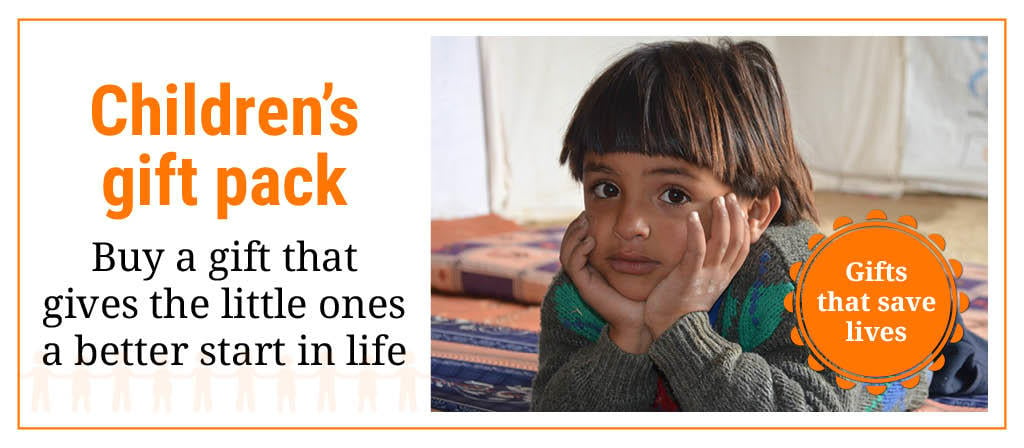
After the war in Syria forced her family to flee to neighbouring Lebanon nine years ago, Safaa, 45 and a mother of seven, lived in constant uncertainty, worrying about where they would live. But last year, the Norwegian Refugee Council (NRC) ensured that she and her family could move into a three-room flat with a bathroom and a kitchen.
“Now we feel safe, and we don’t have to worry about being evicted. Finally, we feel like we are living, not just existing. We’re able to dream of a better future again,” says Safaa. Read her story here.

This is what a home means for a family forced to flee
#1: It can increase your chances of earning an income
After fleeing war or persecution, the opportunity to work and earn money is one of the most effective ways people can rebuild their lives and live in dignity.
Without a proper home, it is very difficult or impossible for displaced families to find paid work. Many live in camps or informal settlements far from towns and markets, and can’t afford to travel. Others lack the documents required to work legally. But if you have a home, you have stability and a better chance of getting a job.
#2: It’s easier to send your children to school
Loss of income means that many parents can’t afford to send their children to school. Without a good home, it is hard for children to concentrate on their schoolwork and homework. Today, more than 78 million children in countries affected by crisis and conflict need help with schooling.
#3: You get better access to health services
Without a proper home, it is difficult for people to access health care and other public services. Many displaced people live in camps or informal settlements with limited or no access to health services. Others lack identity papers or other important documents required to access health care and other public services.
A report on the wider impacts on humanitarian shelter and settlements assistance shows that poor shelter can increase risk to health, and that housing deprivation increases the risk of disability or severe ill health over the course of life by 25 percent.
#4: A home helps to protect children
A good home provides protection. Children are less at risk of violence and sexual abuse. They are less likely to be forced into child labour, married off at a young age or forcibly recruited by armed groups.
#5: You get better access to humanitarian aid
A home ensures that displaced people have better access to humanitarian aid. It is easier for people with a home to seek help from the authorities and organisations that provide aid, and it is easier for humanitarian aid organisations to reach out with the help people need.
#6: A home reduces mental stress
A safe and good home reduces the risk of developing mental stress. Many displaced children struggle with trauma caused by conflict. Without school and a stable living environment, these children’s condition can worsen, and they can miss out on opportunities to receive help.
Even the most basic shelter and settlements assistance can contribute to a sense of normalcy for conflict- and disaster-affected communities.
#7: It’s easier to be included and integrated
Having a home increases the opportunity for displaced families to establish strong social, economic and cultural ties with their host community. When people are included and integrated into the local community, they are more able to rebuild their lives and live in a dignified way.
A recent report by InterAction shows that 46 per cent of families in Lebanon who benefited from housing upgrading, reported reduced community tensions, and increased empathy and trust.
Although most displaced families want to return to their original homes, UN figures show that nearly eight out of ten of the world’s 26 million refugees have been displaced for more than five years.




